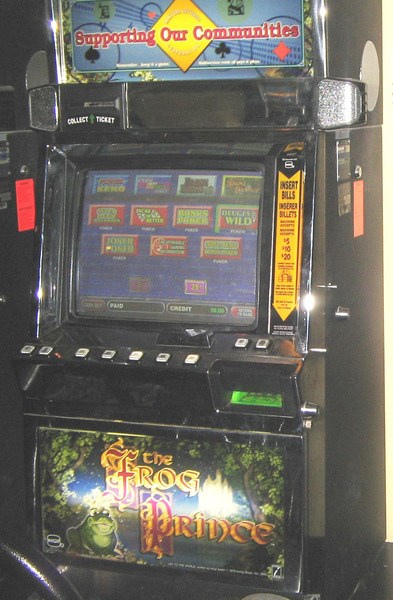Up to $50 million per year may be leaving Thompson in VLT revenues, Coun. Judy Kolada estimates.
The City of Thompson in return received $277,284 from the Government of Manitoba in the form of Rural Community Development VLT grant.
Meanwhile hotel bars and other commercial locations in Thompson with the electronic slot machines, received $2.477 million in "site holders" commissions in for 2008-2009.
Kolada says she is interesting in bringing the issue of VLT revenue leaving the community up at the Association of Manitoba Municipalities (AMM).
According to Kolada, VLTs in some establishments in Thompson average $800 in profit a day for the provincial government. With more than 160 VLT machines in Thompson, she estimates that the amount of revenue leaving Thompson could be between $45 million and $50 million per year.
"The Manitoba Lotteries website indicates that the 'economic impact' on the province is $340 million," Kolada says. "We believe that, in Thompson, there is higher spending per capita on gambling than any other location in Manitoba." She goes on to say that this has a negative impact on the community, citing social problems including addiction, family poverty, family violence and family breakdown.
Steve Ashton, NDP MLA for Thompson and minister charged with the administration of the Manitoba Lotteries Corporation Act, says that money flowing into Thompson from the province's VLT revenues is provided through an unconditional grant based on a per capita basis. Part of the proceeds go to community economic development projects and the remaining 65 per cent of money communities see goes towards general services such as health care, education and social services. Bars and restaurants that house VLTs make a commission of the money the machines make of 20 per cent.
Ashton says having VLTs provides benefits to different groups of people.
"There is a benefit to the site holders, businesses that have them. That was the original reason why they brought in the VLTs, because there were difficult times for hotels and it does provide a significant revenue basis, so that obviously has a benefit," he says. "Municipalities would always like to see more [revenue] but again, even though other parts of the VLT revenue come back, it comes to Thompson in different ways. It may not be through the municipality but through community economic development and health, education, all those other services."
Ashton says the reason VLT revenue flowing into municipalities is based on a per capita basis is because many communities don't have a large number of VLTs but individuals come to play them not just locally but also from other areas in the province.
"When it comes to Thompson or any other community where you have a regional centre, obviously the revenues aren't just from local residents," he explains.
Kolada says the city of Thompson should closely look at whether or not to allow VLTs in the community.
"If we are not getting our fair and equitable share, why would be continue to struggle with the problems associated with these machines?" she asks.
The AMM has posted a resolution to ask the provincial government to disclose the amount of revenue they receive from each community in Manitoba.




